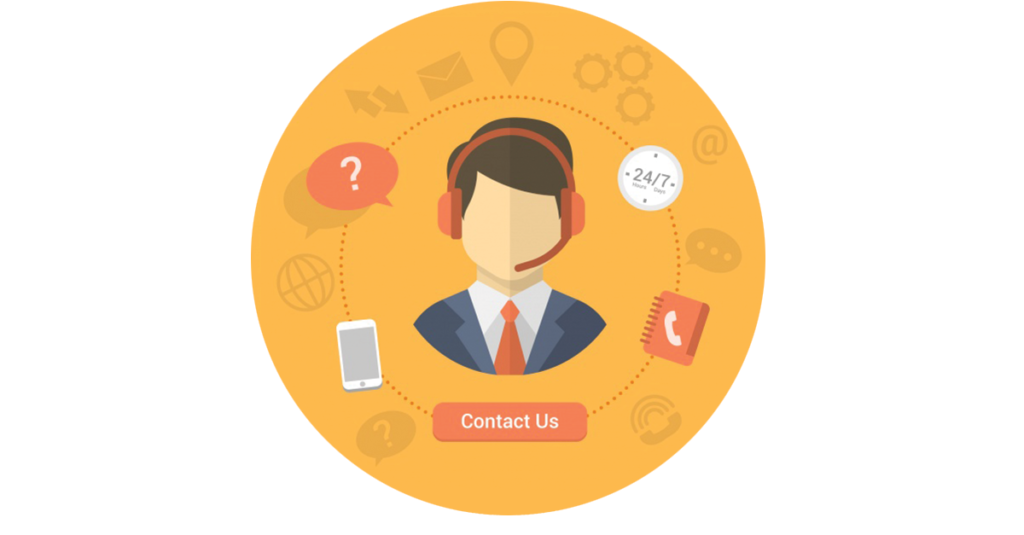Get Pre-qualified
For a Reverse Mortgage Today
Enjoy your retirement without the burden of monthly mortgage payments.
COMPLETE AND SUBMIT THE FORM BELOW AND A REVERSE MORTGAGE SPECIALIST WILL REACH OUT SHORTLY.
The Benefits of a Reverse Mortgage
The #1 retirement tool.

- Improve your cash flow
- Fund Retirement Goals
- Get Rid of Mortgage Payments
- Purchase a Home That Fits Your Lifestyle

- Interest Later
- No Risk of Foreclosure
- Unlocks Equity to Use Now
- Age Requirement: 62 Years or Older
How Does a
Reverse Mortgage Work?
A Reverse Mortgage, also know as a home equity conversion mortgage (HECM) is a special type of home loan that lets you convert a portion of the equity in your home into cash. The equity that built up over years of home mortgage payments can be paid to you. But, unlike a traditional home equity loan or second mortgage, no repayment is required until the borrowers no longer use the home as their principal residence.
Who qualifies for a reverse mortgage? All owners of the property must be at least 62 years of age and must occupy the home as their primary residence.
Legal Guidelines
My Mortgage Live Home Equity Conversion Mortgage (HECM) Disclosure
NMLS# 1604663(www.nmlsconsumeraccess.org).
A reverse mortgage increases the principal mortgage loan amount and decreases home equity (it is a negative amortization loan). My Mortgage Live works with other lenders and financial institutions that offer reverse mortgages. To process your request for a reverse mortgage, MML may forward your contact information to such lenders for your consideration of reverse mortgage programs that they offer.
Reverse mortgage loan terms include occupying the home as your primary residence, maintaining the home, paying property taxes and homeowners insurance. Although these costs may be substantial, MML does not establish an escrow account for these payments. However, a set-aside account can be set up for taxes and insurance, and in some cases may be required. Not all interest on a reverse mortgage is tax-deductible and to the extent that it is, such deduction is not available until the loan is partially or fully repaid.
MML charges an origination fee, mortgage insurance premium (where required by HUD), closing costs and servicing fees, rolled into the balance of the loan. MML charges interest on the balance, which grows over time. When the last borrower or eligible non-borrowing spouse dies, sells the home, permanently moves out, or fails to comply with the loan terms, the loan becomes due and payable (and the property may become subject to foreclosure). When this happens, some or all of the equity in the property no longer belongs to the borrowers, who may need to sell the home or otherwise repay the loan balance.
V2019.04.17
CONSUMERS WISHING TO FILE A COMPLAINT AGAINST A MORTGAGE BANKER OR A LICENSED MORTGAGE BANKER RESIDENTIAL MORTGAGE LOAN ORIGINATOR SHOULD COMPLETE AND SEND A COMPLAINT FORM TO THE TEXAS DEPARTMENT OF SAVINGS AND MORTGAGE LENDING, 2601 NORTH LAMAR, SUITE 201, AUSTIN, TEXAS 78705. COMPLAINT FORMS AND INSTRUCTIONS MAY BE OBTAINED FROM THE DEPARTMENT’S WEBSITE AT WWW.SML.TEXAS.GOV. A TOLL-FREE CONSUMER HOTLINE IS AVAILABLE AT 1-877-276-5550. THE DEPARTMENT MAINTAINS A RECOVERY FUND TO MAKE PAYMENTS OF CERTAIN ACTUAL OUT OF POCKET DAMAGES SUSTAINED BY BORROWERS CAUSED BY ACTS OF LICENSED MORTGAGE BANKER RESIDENTIAL MORTGAGE LOAN ORIGINATORS. A WRITTEN APPLICATION FOR REIMBURSEMENT FROM THE RECOVERY FUND MUST BE FILED WITH AND INVESTIGATED BY THE DEPARTMENT PRIOR TO THE PAYMENT OF A CLAIM. FOR MORE INFORMATION ABOUT THE RECOVERY FUND, PLEASE CONSULT THE DEPARTMENT’S WEBSITE AT WWW.SML.TEXAS.GOV.
Reverse mortgage loan terms include occupying the home as your primary residence, maintaining the home, paying property taxes and homeowners insurance. Although these costs may be substantial, MML does not establish an escrow account for these payments. However, a set-aside account can be set up for taxes and insurance, and in some cases may be required. Not all interest on a reverse mortgage is tax-deductible and to the extent that it is, such deduction is not available until the loan is partially or fully repaid.
MML charges an origination fee, mortgage insurance premium (where required by HUD), closing costs and servicing fees, rolled into the balance of the loan. MML charges interest on the balance, which grows over time. When the last borrower or eligible non-borrowing spouse dies, sells the home, permanently moves out, or fails to comply with the loan terms, the loan becomes due and payable (and the property may become subject to foreclosure). When this happens, some or all of the equity in the property no longer belongs to the borrowers, who may need to sell the home or otherwise repay the loan balance.
V2019.05.30
MML Traditional Mortgage Disclosure
Frequently Asked Questions About Reverse Mortgages
What is a reverse mortgage?
A reverse mortgage is a loan product that allows senior homeowners to convert home equity into cash. Most reverse mortgages are provided by the Federal Housing Administration (FHA), as part of its Home Equity Conversion Mortgage (HECM) program.
How does a reverse mortgage work?
With a reverse mortgage, you receive money from your mortgage company as a loan secured against the equity in your home. The money is paid to you in a lump sum, through a line of credit, or as monthly payments. Fees and interest are charged on the loan amount (or “loan proceeds”); therefore, over time the loan balance increases and your home equity decreases.
What are the benefits of a reverse mortgage?
A reverse mortgage lets you use the value of your home to provide a source of income while allowing you to stay in the home. It may be an effective way to benefit from the money you’ve invested in your home over the years.
What are my obligations?
Having a reverse mortgage, you are required to:
- Pay your property-related expenses on time. Property-related expenses include: real estate (property) taxes; utilities; homeowner’s (sometimes referred to as “HOA” fees) and/or condo association dues; homeowner’s insurance (also referred to as “hazard” insurance); and flood insurance premiums (if applicable).
- Maintain the property’s condition. You must maintain the condition of your home at the same quality as it was kept at the time you took out the reverse mortgage loan.
- Live in the property as your primary residence. You are required to certify this on an annual basis.

The HECM Spin on Retirement
The HECM Spin on Retirement
When it comes to Reverse Mortgage, the offerings of old have evolved toward what’s provided anew via the Home Equity Conversion Mortgage—also known as HECM. Rare is the case to have perfected, a model that’s been fully structured and operating out of in its initial phases. The Reverse program underwent careful sowing to see realized a fully grown, working fruition.
A look back to the first Reverse transaction in 1961, reveals evident the program’s survival through the test of time. 1 The original vision for a better Reverse is what continually led its authors back to their drawing boards. And for decades, much effort went into the production of a uniquely great lending model that would allow for a work-in-progress moldability.
An unfortunate reality presented itself through the disappointments of past borrowers and their families. Detrimental outcomes resulting from poor regulation, left a sticky reputational residue that was difficult to shake. In theory, the Reverse had proposed a solid, viable retirement option; in reality, it underdelivered a lifespan practicality. The post-Reverse, ‘non-recourse’ HECM, has stricken from the record a grandfathered fear: ‘that by outliving one’s predetermined expectancy, eventual home loss would ensue.’
The HECM is not solely a desperate last means to some needed ends, nor a ‘second hand’ approach to a secured retirement. However, the protections and oversight imposed through 2017’s regulation overhaul, created for need-based and savvy borrowers alike, a security to explore the HECM’s reformed offerings and advantages. What’s now obtainable is an entertainable, custom-friendly retirement option that’s increasingly accommodating elders of all circumstances.
Is there an ideal HECM candidate?
Many would be surprised to discover that there isn’t a uniformed nor characterized ideal when it comes to the HECM borrower demographic. The HECMs advantage benefit applies to a range of borrowers on several fronts. The old narrative pegged the HECM as merely a needs-based, last resort loan—at best, this only attributed to the program a half-truth justice.
While the HECM and its products certainly offer financial relief potential to many struggling seniors, the flip side of the same coin proposes to borrowers a financial planning tool. HECM candidates at large can choose a tailored program based upon their individual needs, desires and financial positioning.
Who is a HECM Candidate?
Seniors aged 62 or over.
Seniors on a fixed income looking to supplement income gaps.
Affluent and/ or financially savvy seniors looking to maximize their resource(s) benefit.
Seniors seeking to Age in Place while enjoying a ‘No Mortgage Payment’ Living Flexibility.
Seniors Interested in a ‘Line of Credit’ (LOC) Emergency Cash Access Back-Up Plan.
Seniors desiring a ‘Right Size’ move adjustment into a new home.
What type of HECM product(s) options are available to eligible Seniors?
HECM Loan/ Line of Credit — Fixed and Variable Rate Options
HECM for Purchase
HECM Refinance
The new HECM reality is gradually paving way toward greater consumer awareness and interest. And it’ll be only a matter of time before retirees begin to believe in the value of mortgage return, where they’re able with confidence, to convert their largest assets into income.
Need to Speak With Someone About Your Reverse Mortgage Now?
Go live with one of our mortgage professionals and get immediate assistance with your loan questions


